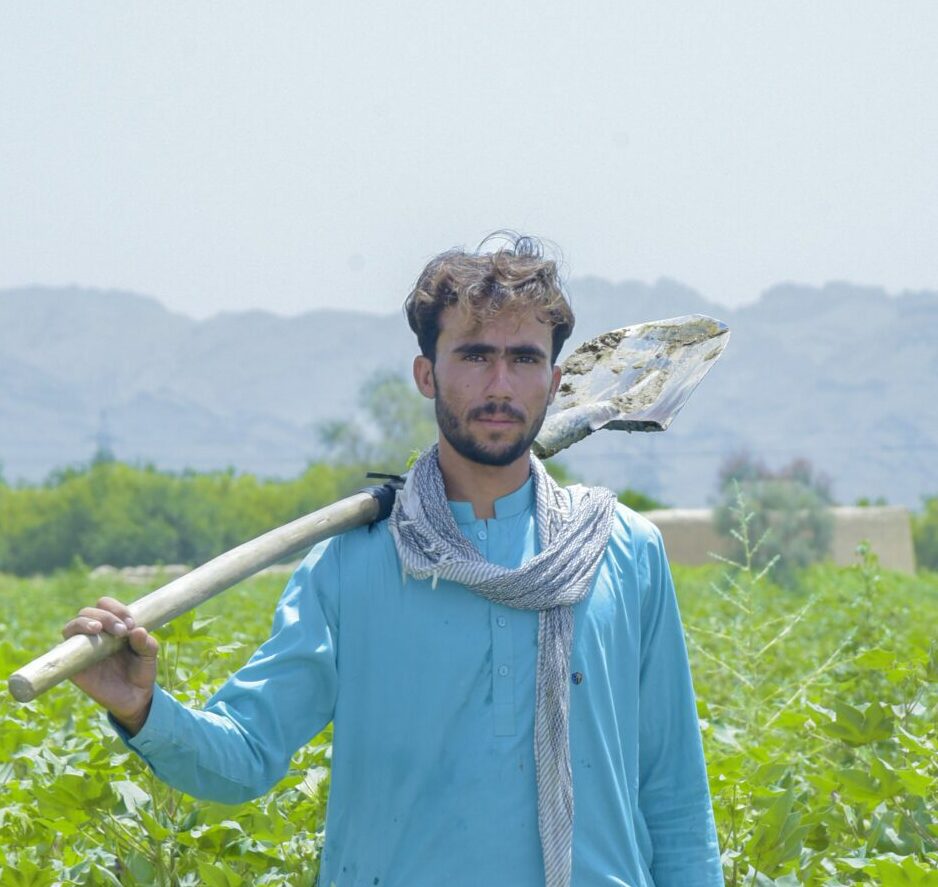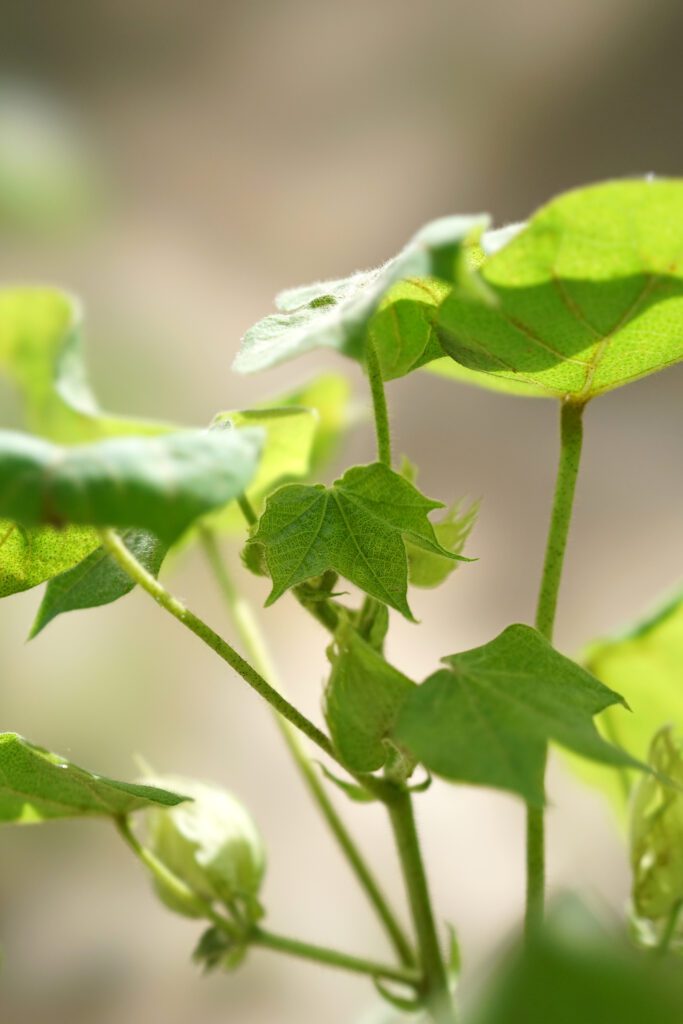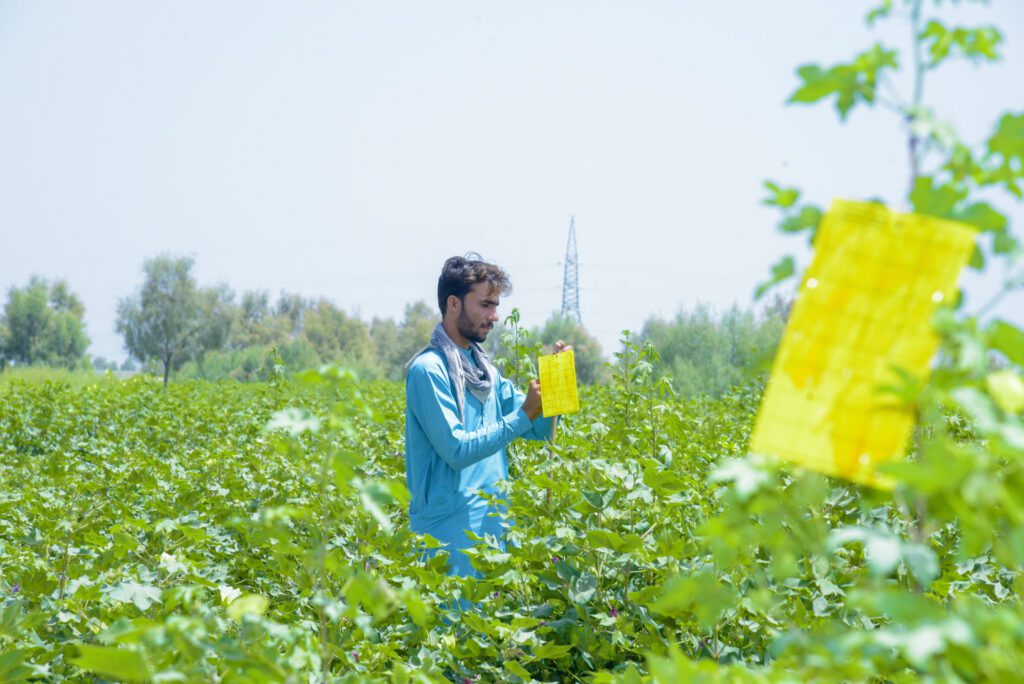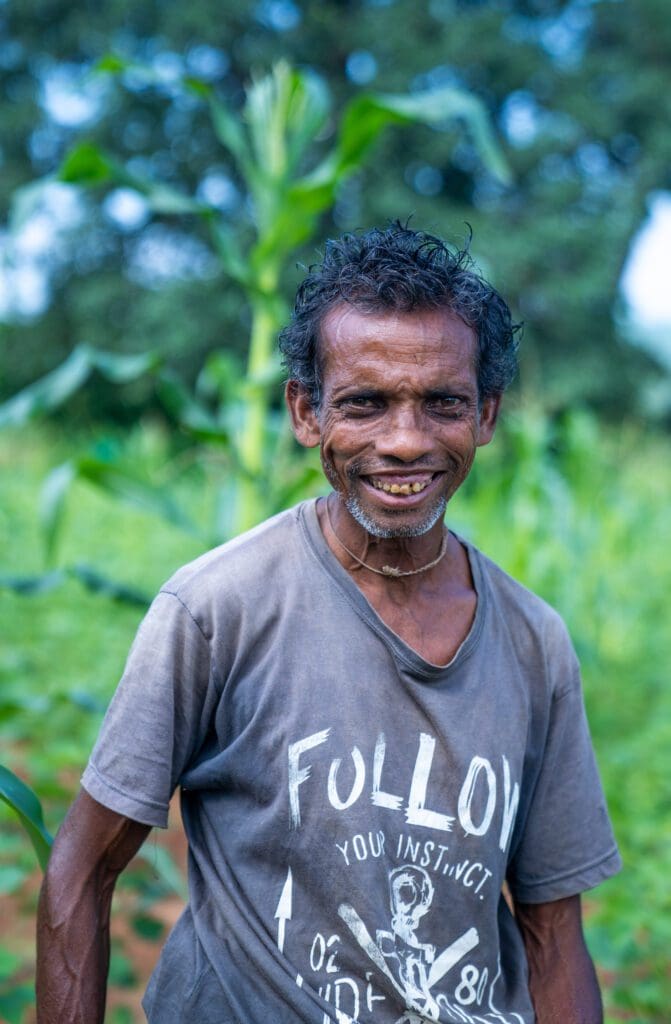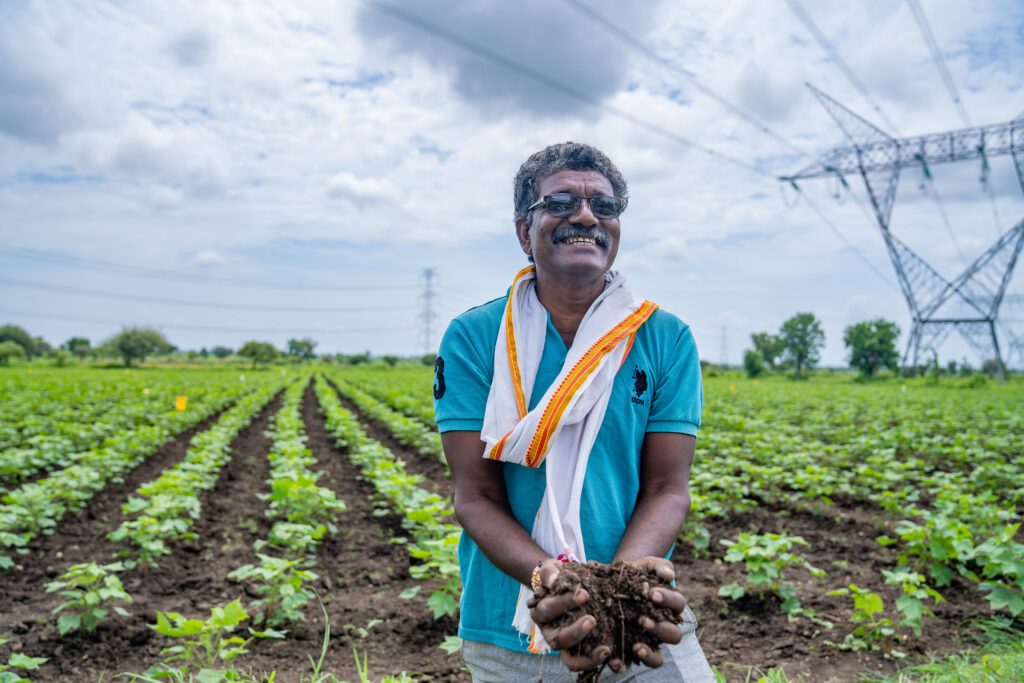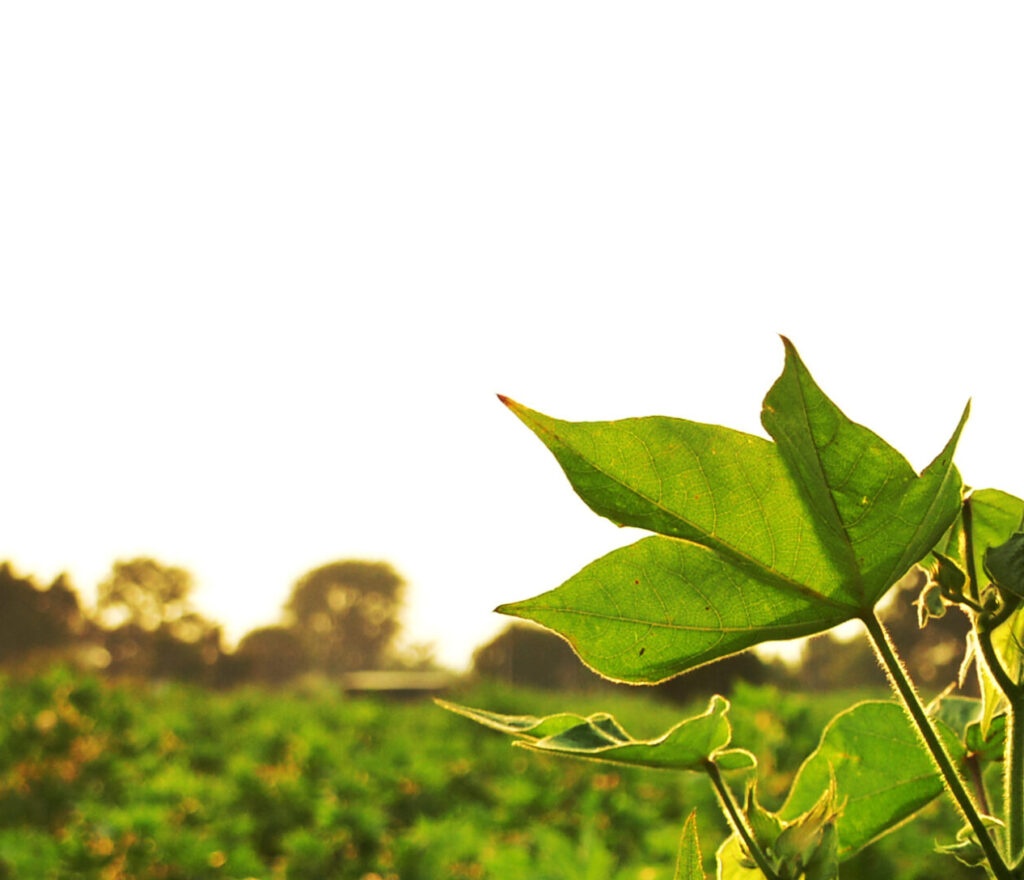 India
India From conventional to organic practices
Meet Muhammad Aslam, an inspirational organic cotton farmer who has become a role model for his fellow farmers in Cheel, a village located in the Khuzdar district of Pakistan. In this sun-baked and sandy landscape, cotton cultivation thrives, making it the district’s primary crop and a vital source of employment for many. With the support of our on-site partner, Aslam successfully transitioned from conventional to organic practices in his cotton production.
Bugs are quite fond of cotton, ranging from bollworms and plant bugs to aphids, thrips, and spider mites. A major part of cotton production’s impact comes down to pest control. The heavy and often careless use of fertilizers, pesticides and herbicides, in conventional cotton production not only harms the environment, including soil health, but cotton farmers, too. Currently, an estimated 44% of farmers suffer pesticide poisoning each year.
Organic cotton, on the other hand, is cultivated without the use of synthetic pesticides or chemical fertilizers. Instead, it employs natural methods to manage pests and enhance soil health. This holistic approach not only safeguards the well-being of farmers but also contributes to the preservation of the environment.
With the support and guidance of the organic cotton program, Aslam started using farmyard manure and bio-pesticides in his cotton fields to address cotton pests. Expert field trainers introduced Aslam to the efficiency of certain essential oils and extracts as bio-pesticides targeted at specific pests, but otherwise sustainable and safe for the environment and people. Following their expert guidance, he successfully implemented a number of natural extracts, such as turmeric, bitter apple, and tobacco to combat bollworms, cotton’s most common pest, in his 8-acre cotton farm.
Organic impact on Aslam’s cotton production
The transition to organic practices had a profound impact on Aslam’s cotton production. Although Aslam’s yield initially decreased by 10% when switching to organic practices, the organic nature of his production enabled him to command a more favorable selling price.
28%
reduced water consumption
40%
decreased production costs
33%
increase in profits
Supporting farmers from conventional to organic
As Aslam’s story shows, organic production benefits farmers, as they receive higher market prices for organic cotton, and their land due to the elimination of synthetic pesticides and fertilisers. However, the three-year conversion period from conventional to organic agriculture can be challenging as farmers may experience lower yields, are unable to claim the organic premium payment, and may encounter difficulties in sourcing GMO-free seeds, a fundamental requirement for organic farming. This conversion period can be demanding, so it’s no surprise that many smallholders require additional support.
We know organic cotton farming can be challenging, which is why OCA exists. OCA has always been about creating the conditions for organic cotton to thrive – by putting farmers first. OCA’s Farm Programme aims to improve farmer livelihoods by establishing a stable market for their cotton and providing them with essential training, support, and access to high-quality seeds and other vital inputs required for organic cotton production. Discover more inspiring stories from our dedicated farmers!
OCA’s Farm Programme has successfully mobilised a growing number of brands and retailers in taking action within their supply chains. We connect them with organic cotton farm groups through our direct-to-farmer sourcing model. This approach offers brands increased transparency at the farm level and a secure supply of organic cotton, while contributing to concrete improvements in the lives of organic farmers. Join OCA and support our programmes to drive the next generation of organic cotton supply. Let’s unleash the potential of organic cotton together!
